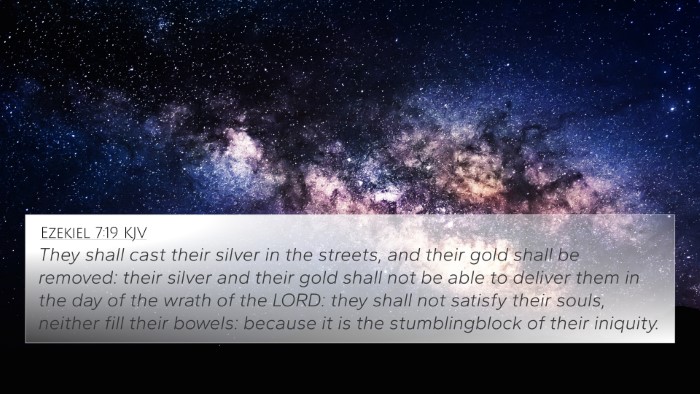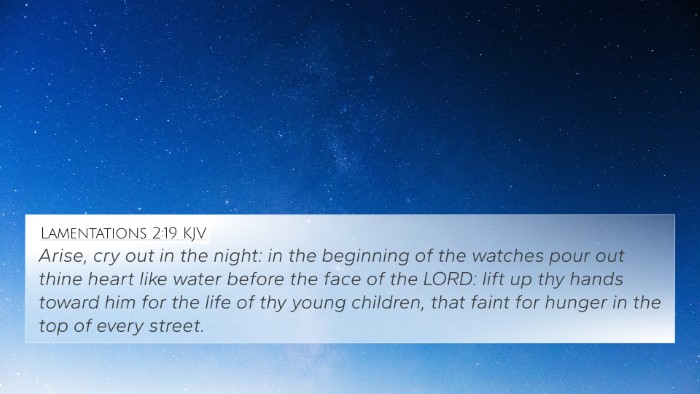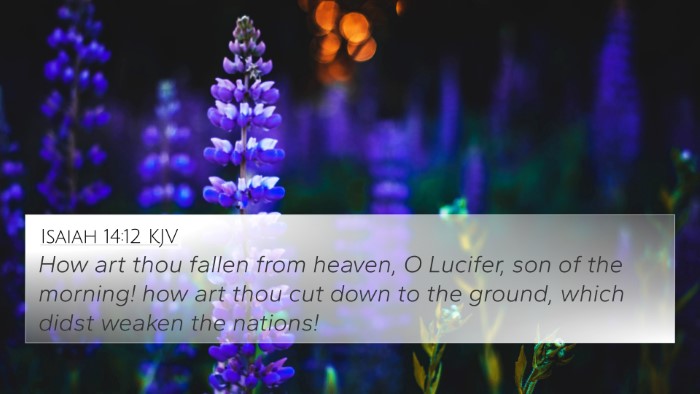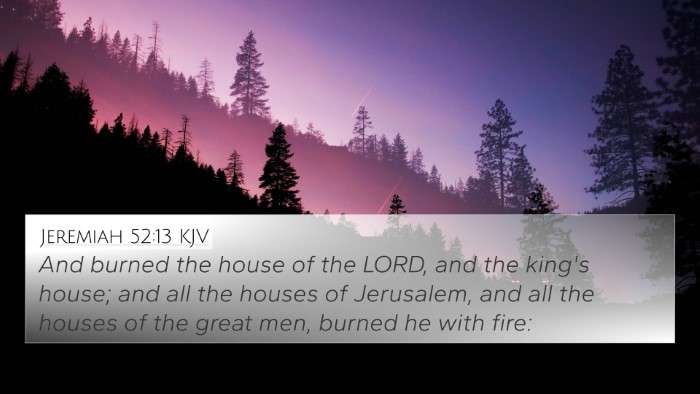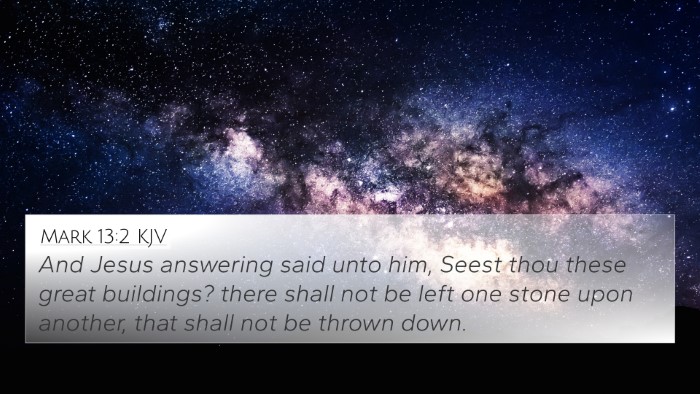Lamentations 4:1 - Understanding the Verse
Lamentations 4:1 states, "How is the gold become dim! how is the most fine gold changed! the stones of the sanctuary are poured out in the top of every street." This verse poignantly illustrates the devastation experienced by the people of Jerusalem and serves as a lament for the lost glory of the city.
Context and Significance
The book of Lamentations is a poetic reflection on the tragedy that befell Jerusalem after its destruction. This specific verse captures the profound sense of loss not only in material wealth but also in spiritual richness.
Material vs. Spiritual Loss
According to Matthew Henry's commentary, the "gold" and "fine gold" symbolize the former magnificence of the temple and the people's relationship with God, which has now tarnished. The loss of these treasures signifies a more significant spiritual desolation.
Imagery of Destruction
Albert Barnes emphasizes the imagery in this verse, reflecting on how the beauty and wealth that once characterized Jerusalem have been transformed into disgrace. The metaphor of gold losing its luster captures the essence of sin and judgment, where God's favor has departed.
The Role of Deprivation
Adam Clarke notes that the pouring out of the stones of the sanctuary in public spaces illustrates the complete degradation of sacredness in the once-holy city. The verse presents a stark visualization of the transition from a place of worship to a site of shame.
Cross-References
Understanding Lamentations 4:1 can be enriched by exploring cross-references with other Bible verses. Below are several verses that connect with the themes of lamentation, loss, and judgment:
- Jeremiah 7:14: "Therefore will I do unto this house, which is called by my name, wherein ye trust, and unto the place which I gave to you and to your fathers, as I have done to Shiloh." This verse emphasizes the abandonment of God's sanctuary.
- Ezekiel 7:19: "They shall cast their silver in the streets, and their gold shall be removed: their silver and their gold shall not be able to deliver them in the day of the wrath of the Lord." A reiteration of how riches cannot save in times of divine judgment.
- Isaiah 64:11: "Our holy and our beautiful house, where our fathers praised thee, is burned up with fire: and all our pleasant things are laid waste." This connects with the beauty and holiness of the temple, now in ruins.
- Psalm 44:9-10: "But thou hast cast off, and put us to shame; and goest not forth with our armies. Thou makest us to turn back from the enemy." This demonstrates the feelings of abandonment experienced by the people.
- 2 Kings 25:14-15: "And the pots, and the shovels, and the snuffers, and the spoons, and all the vessels of brass wherewith they ministered, took they away." This gives a tangible account of the Temple's destruction.
- Lamentations 1:12: "Is it nothing to you, all ye that pass by? behold, and see if there be any sorrow like unto my sorrow." The communal lamentation connects directly to the feelings expressed in 4:1.
- Micah 3:12: "Therefore shall Zion for your sake be plowed as a field, and Jerusalem shall become heaps, and the mountain of the house as the high places of the forest." This emphasizes the devastation of Jerusalem.
Thematic Connections
The prevalent theme of loss and purification resonates through the books of the Prophets. This thematic connection highlights the cyclical nature of sin, judgment, and redemption found throughout the scriptures. Observing these connections provides valuable insights into the broader narrative of the Bible.
Scriptural Cross-Referencing
By using a Bible concordance or a cross-reference Bible study guide, readers can explore additional passages that speak to themes of lamentation and the consequences of turning away from God. Tools for Bible cross-referencing enhance one’s understanding of the connections between different scriptural texts.
Conclusion
In conclusion, Lamentations 4:1 serves as a profound reflection on the consequences of sin and the resulting spiritual desolation faced by Jerusalem. Through cross-referencing and comparative Bible verse analysis, we can grasp the full extent of the themes presented in this verse. Understanding parallel scriptures not only deepens our appreciation of this particular lament but also enriches our comprehension of God's overarching narrative throughout the Bible.



